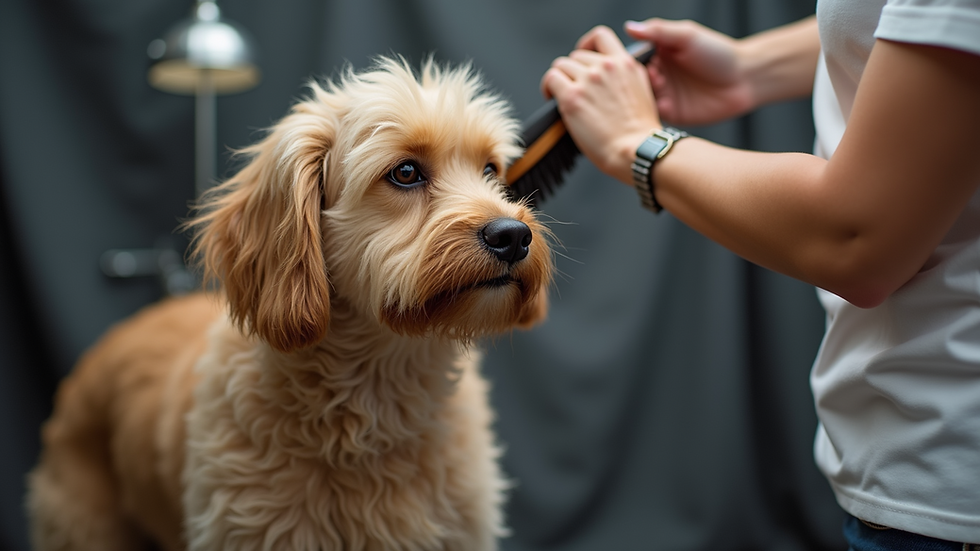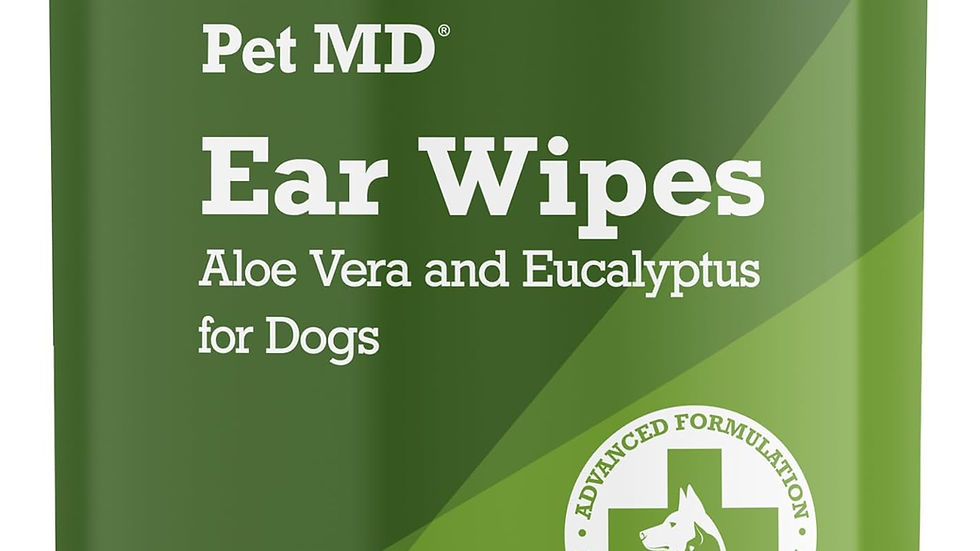Essential Tips for Dog Hygiene and Health
- Sep 26, 2025
- 4 min read
Updated: Nov 4, 2025
The Importance of Dog Hygiene
Hygiene is crucial for your dog's health. Regular care helps prevent various health issues. A clean dog is a happy dog. By following a consistent hygiene routine, you can ensure your furry friend stays healthy and comfortable.
Regular Grooming
Grooming plays a crucial role in your dog's hygiene routine. Regular brushing removes dirt, debris, and loose fur, preventing matting and skin problems. For instance, a long-haired breed, like a Golden Retriever, may need daily brushing to avoid tangles, while short-haired breeds, such as Beagle, may only require weekly brushing.
Bathing your dog is equally important. Using a dog-specific shampoo can help prevent skin irritation. You should aim to bathe your dog every month or as needed, depending on their lifestyle and coat condition. For example, dogs that love playing outdoors might require more frequent baths.

Nail Care
Nail care is vital for your dog's health, yet it is often neglected. Overgrown nails can lead to discomfort and mobility issues. Trimming your dog's nails every 3 to 4 weeks can help prevent these problems. If you're uncomfortable doing this yourself, consider visiting a professional groomer or your veterinarian for assistance.
In addition to regular trimming, allowing your dog to walk on hard surfaces can help naturally wear down their nails. This simple practice could significantly enhance their comfort and movement.
Dental Hygiene
Good dental health is critical for your dog's well-being. Poor dental hygiene can lead to serious issues, such as gum disease and tooth loss. For maintaining your dog’s dental hygiene, consider these tips:
Brush their teeth regularly: Use a toothbrush and toothpaste specifically designed for dogs. Aim for brushing two to three times a week to reduce plaque buildup. Research shows brushing can decrease the risk of dental disease in dogs by up to 80%.
Provide dental chews: These treats not only entertain your dog, but they also help reduce plaque and tartar. Choose vet-approved options for the best results.
Schedule vet check-ups: Regular dental cleanings by your vet can help catch any issues before they become serious.
Water Additive Dental Care Targets Tartar: Water additives for dental care are innovative products designed to help maintain oral hygiene, specifically targeting tartar buildup. These additives can be mixed with your pet's drinking water, providing an easy and effective way to support dental health.
When selecting a water additive for dental care, consider the following:
Ingredients: Look for safe and effective components.
Veterinarian recommendations: Consult with a vet for trusted brands.
Pet preferences: Ensure your pet is willing to drink the treated water.
Incorporating a water additive into your pet’s daily routine can significantly contribute to their overall dental health, making it an essential tool for tartar management.
Ear Care
Ear care is essential, particularly for breeds with floppy ears, as these dogs are more susceptible to infections. It's crucial to regularly check for signs like redness, swelling, or unusual odor, which may indicate an infection.
When cleaning your dog's ears, use a vet-recommended cleaner and cotton balls. Avoid cotton swabs to prevent pushing debris deeper into the ear canal.
Healthy Diet
A balanced diet is fundamental for your dog's overall health. Ensure that your dog is eating high-quality food that meets their nutritional needs. For example, a medium-sized dog typically requires about 800 to 1,200 calories daily, depending on their age and activity level.
In addition to regular meals, incorporate healthy treats and ensure fresh water is available at all times. Avoid giving your dog table scraps, especially foods that can be harmful to them, such as chocolate or onions.
Regular Exercise
Exercise is crucial for your dog's mental and physical health. Regular walks, playtime, and games prevent obesity and keep your dog happy. Aim for at least 30 minutes of exercise daily, adjusting based on your dog's energy level and breed.
Activities like fetch or swimming not only provide physical health benefits but also mental stimulation. For instance, breeds like Border Collies thrive on agility training, allowing them to use their intelligence while getting exercise.
Vaccinations and Preventive Care
Keeping your dog up-to-date on vaccinations is crucial for health. Vaccines protect against various diseases, including rabies, parvovirus, and distemper. Consult your veterinarian to create a vaccination schedule tailored to your dog's needs.
Preventive care should also include flea and tick treatments, along with heartworm prevention. Regular vet visits can detect potential health issues early, improving your dog's quality of life.
Monitoring Health Changes
As a responsible pet owner, monitoring your dog's health regularly is essential. Pay attention to changes in behavior, appetite, or energy levels. If anything seems unusual, consult your veterinarian promptly.
Regularly checking your dog's weight and coat condition can also provide insights into their overall health. For example, a sudden weight gain or loss of more than 10% could signal underlying health issues that require veterinary attention.

Final Thoughts
Maintaining your dog's hygiene and health is a rewarding responsibility that requires attention and care. Following these essential tips can ensure your furry friend remains happy and healthy for years to come. Regular grooming, dental care, a balanced diet, and preventive measures are key components of a successful hygiene routine. With your efforts, you'll not only enhance your dog's life but strengthen the bond you share, creating many tail-wagging moments together.
Unique Gifts for Pet Lovers
If you're looking for unique gifts that support animal rescue, consider exploring custom pet-themed products. These gifts not only celebrate the bond between you and your pet but also contribute to meaningful causes. Supporting animal rescue is a wonderful way to give back while enjoying the joy of pet ownership.




Comments